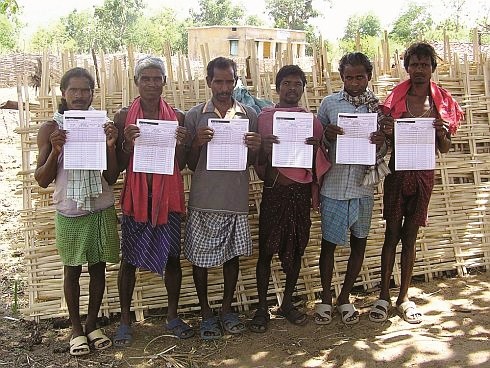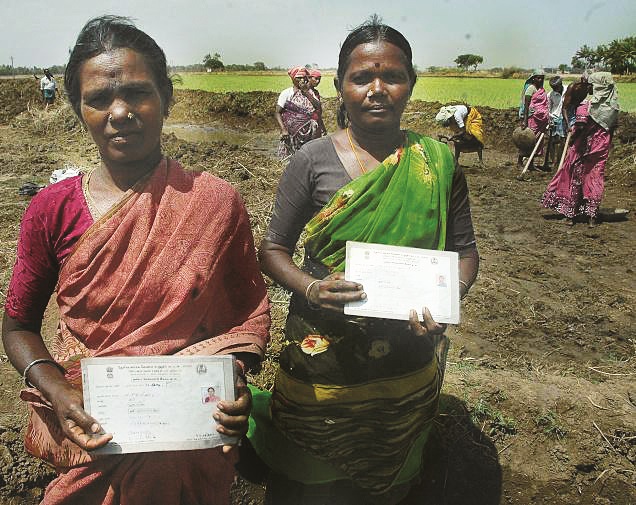The UPA-led Central government might well be considering the Mahatma Gandhi National Rural Employment Guarantee Act (MNREGA) its biggest achievement but its implementation at the ground level is far from satisfactory. The scheme seems to have lost steam in the short period since its launch. A recent report on the implementation of the scheme in Bihar is a pointer to the state of affairs.
According to a survey conducted by Delhi-based NGO Centre for Environment and Food Security (CEFS) in January 2012, of the Rs.8189 crore spent on MNREGA by the Bihar government in the last six fiscal years (2006-07 to 2011-12), nearly 73 per cent was siphoned off with the collusion of the government officials. The amount of this loot – around Rs.6000 crore – is staggering, to say the least. It may be mentioned here that the Supreme Court has ordered a CBI probe into corruption in MNREGA in Orissa on the basis of the report of the CEFS.

The CEFS report on Bihar is based on a sample survey of 100 villages in 10 districts of Bihar. The districts chosen for survey were Purnea, Katihar, Begusarai, Muzaffarpur, Vaishali, Nalanda, Nawada, Gaya, Bhojpur and Buxar. In every village, 25 very poor Dalit and Tribal families were chosen for this questionnaire-based survey. The survey thus covered 2500 Dalit and Tribal families, languishing in extreme poverty and starvation.
The survey revealed that not a single family among those surveyed got employment for hundred days a year in any of the last six years. Moreover, 53 percent families did not get employment for even a day. According to the report, in these districts, on an average, employment was provided for only six days a year. The report says that 80 per cent of the MNREGA funds were gobbled up in Purnea. The corresponding figures for other districts are: Katihar (70 per cent), Begusarai (62 per cent), Muzaffarpur (71 per cent), Vaishali (82 per cent). Nalanda (70 per cent), Nawada (79 per cent), Gaya (63 per cent), Bhojpur (85 per cent) and Buxar
(68 per cent). These figures amply show how far MNREGA was successful in helping the poor of these 10 districts earn their livelihood.

In the recent past, no other welfare scheme of the government won the adulation of the people as much as MNREGA has. But while the government is patting itself on the back for launching the scheme, at the implementation level, the scheme has come a cropper. Surveys by government and non-government agencies have revealed many loopholes in the implementation of the scheme. At some places there are complaints that job cards were not prepared, at others, 100 days’ employment was not provided and, at still others, the attendance registers were tampered with. Additionally, cases of preparation of fake muster rolls and of fake bills for use of machines have come to light. The scheme seems to be riddled with problems and shortcomings. Studies and surveys also show that the scheme is informed by unbridled corruption. It is ironical that the labourers are neither getting their wages in time nor the promised 100 days employment.
Published in the February 2013 issue of the Forward Press magazine
Forward Press also publishes books on Bahujan issues. Forward Press Books sheds light on the widespread problems as well as the finer aspects of the Bahujan (Dalit, OBC, Adivasi, Nomadic, Pasmanda) community’s literature, culture, society and culture. Contact us for a list of FP Books’ titles and to order. Mobile: +919968527911, Email: info@forwardmagazine.in)




